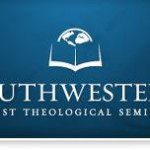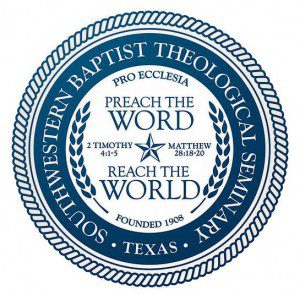My recent Open Letter to a College Freshman generated many positive responses. One less-positive response came at Mark D. Roberts’ excellent blog, where a commenter explained that he had not found, some decades ago at UCLA, the kind of antagonism toward his faith that I described. We should not, he said, “send freshmen off to college assuming that they are entering a spiritual war zone where their beliefs will constantly be under attack.” Another commenter (a professor) said the letter creates the impression that faculty “must be bulwarked and buttressed against.”
The commenters are right, but they’re really objecting to what they assumed the letter implied. That will be clear by the end of the post. There are at least two questions here: Is the academic world antagonistic to Christian faith? And should Christians go into academia with a kind of bunker warfare mentality?
Is the Modern University Antagonistic to Christian Faith?
The proper answer here is that the modern secular university in general is deeply suspicious and critical of traditional Christian belief. First let me explain a caveat, and then I’ll explain two reasons for this aversion.
The caveat is implied in the italicized qualifiers. The modern secular university is generally comfortable with certain forms of Christian faith. A recent analysis of the General Social Survey from the sociologist Philip Schwadel contradicts the (in his words) “almost unquestioned belief” among scholars of religion “that education and other aspects of modernity are detrimental to religion.” By many measures the more educated, he found, are more religiously observant — they’re more likely to participate in worship and devotional activities, more likely to affirm the importance of religion in public life — and it’s hard to imagine that this would be the case if the educational establishment in general were averse to Christian faith itself.
However, while academia does not decrease the incidence of Christian faith, certain forms of faith are strongly preferred at the modern university. Schwadel’s study found that the increase of education does not make a person more or less likely to believe in God or the afterlife, but the more educated are less likely to believe that the Bible is the literal Word of God, or that Christianity is the only true or salvific religion.
This points to the first reason why the modern secular university is averse to orthodox Christian faith. The university is not opposed to Christianity itself, but to certain beliefs and behaviors associated with traditional Christianity. Some of those views are theological or ecclesial in nature; the academy in general, for instance, will not look kindly on the view that the Judeo-Christian Bible alone adequately describes God, or faith in Christ is the sole path to salvation, or that men alone should be in positions of church leadership. Some of those views are metaphysical; the academy in general will be averse to the view that God intervenes in the human sphere in ways that defy natural explanation, or that Jesus was literally resurrected, or that the process by which the Christian canon was selected was guided by the Spirit. Still other of those views are social-political; the modern secular university is adamantly opposed to the views that abortion, premarital sex and homosexual relationships are immoral.
If you are a Christian who does not hold to many of these views, or perhaps you study in fields where these things are rarely discussed, or perhaps you just rarely speak up in defense of your views, then you will find less friction against your faith in the university atmosphere. If you belong to a community that affirms many of these things, however, and you have not repudiated that community, then you will find that many faculty, especially in philosophy or religious studies or social studies or etc., will believe that your intellectual “maturation” requires that you leave behind these backwards, provincial, irrational points of view. In some cases, those faculty members will be able to defend their opposition to your beliefs with great power of evidence and argumentation. In other cases, their opposition will be more visceral and political. If you’re one of those Christians, namely the theologically, morally and perhaps politically conservative kind, then you are likely to encounter a good deal of opposition to your faith. Not because the faculty dislike Christianity in all forms, but because they dislike the things that Christians traditionally have believed and valued and fought for. These same faculty are just poorly taught; they inherited a view of history in which the Christians and their moral absolutism, their exclusivism (called “religious supremacism” in some academic circles now), and their “imperialism” are the causes of much of the suffering in the world.
The second reason for the modern secular academy’s aversion to traditional Christian faith is precisely that it’s traditional. I tried to explain this in the Letter. The dynamics of academic work in the humanities and social sciences reward the proposal and defense of novel and liberating theses. If I had proposed, for instance, to defend a White Male Theology, not only would I be told that this perspective had already been adequately examined in the history of Christian theology, but I would be told that it was exclusionary and hurtful to privilege the dominant, majority group. If I proposed, as a white male, to defend Black Womanist Theology, or One-Legged Lesbian Theology (we kid because we care), or to claim that white male privilege was so pervasive in the history of theology that the whole kit and caboodle should be thrown out — ah, then I’d have a worthy subject for a dissertation. It was always revealing to me that “I find that offensive” was the Get Out of Argument Free Card in too many seminars. In the study of religion there is a great deal of interest in exploring the perspectives — and the grievances — of historically marginalized people groups.
Some of that is right and good; it is important to learn from the experiences of groups that have not always been represented at the table. But I find that the relentless publication pressure for the new creates a systemic bias against traditional beliefs (because a defense of traditional beliefs is anything but new), meaning that many academics learn that they can have success by attacking traditional beliefs or developing new systems of belief, and that the pressure to develop arguments that are regarded as helpful or liberating produces a systemic bias against those things that the faculty have come to regard as “oppressive.”
Should Christians Enter Academia Ready for Battle?
For all that, however, a dismissive or suspicious or antagonistic attitude toward the faculty is neither justified nor helpful. I believe that Christian students who enter into the modern secular university should be aware of the forces shaping the intellectual life there and how those forces often lead to skepticism or attack toward traditional forms of Christian faith. They should understand that professors — no less than other human beings — are limited and fallible and often swayed by their desires and biases and grievances. And they should understand that the dynamics of publication and tenure, as a general matter, do create strong incentives and rewards for those who challenge challenge traditional beliefs and strong disincentives and penalties for those who defend them. They should know that many professors will believe that “maturing” in their beliefs will mean becoming more inclusive, more “tolerant,” less “dogmatic,” more affirming of different moral systems and different lifestyles — in short, more like them, the professors, and less like the pastor at home who believes that Jesus really did perform miracles and that the Bible is a repository of eternal truths and moral values.
But they should not view their professors as the scheming enemies of their faith. For one thing, it’s just not that nefarious. Most professors really do want to help their students; they just have a particular view of what that “help” looks like. For another thing, as I noted in the letter, professors have learned a great deal over the course of their careers and students should learn everything they can from them. There is a body of knowledge to receive from the elder generation, and there is a process of reexamining our faith and coming to appreciate the faiths and philosophies of others that is very helpful and important. For many Christians, college is a kind of intellectual rumspringa where they explore and experiment with other ways of seeing the world. All of that is fine. I just want those students to know that when they encounter sophisticated criticisms of Christian faith, they should know where those criticisms are coming from, and they should know that there are just-as-sophisticated defenses of Christian faith out there.
Perhaps most importantly, though, a bunker, warfare mentality just isn’t a winsome witness and it often creates the false impression (for the student herself) that her faith depends upon her defense of it. Confident in the goodness of the Truth, Christians of all people should be the most open to honest inquiry and generous intellectual dialogue. They should not be defensive or desperate; they should be even more committed to seeking and serving the Truth than the professors are. Too often (though not always), apologetics is driven by insecurity. If someone asks you a question to which you don’t know the answer, say, “That’s a great question. I really want to think about that with you.” Be good humored, be comfortable, be personable. It is not you who hold on to God; it is God who holds onto you. God will not be hurt, offended or thwarted just because you cannot defeat the arguments of the skeptic in the classroom.
And you may find that your faith is strengthened because you wrestled with God and trusted in Truth. One of the most interesting results from Schwadel’s study was that Evangelicals, more than any other religious group, are the most likely to grow more devout and more observant in their faith as they become more educated.
So, to be clear, I made the case that there are intrinsic antagonisms between the modern secular academy and traditional Christian faith. I did not make the case — and in fact I explicitly said otherwise — that students should not listen to their professors, should not be open to questioning their faith, or should retreat behind some kind of intellectual bunker. I think it’s far better to engage the culture of the university, to honor the ideals of inquiry that the university itself often fails to fulfill, to permeate the whole academic sphere with faithful students seeking the Truth faithfully, than it is to withdraw behind intellectual bunkers and lob bombs across the ditch.











